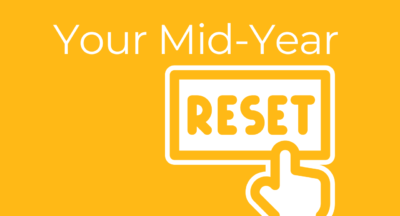
What is Mental Health?
By Priscilla Gonzalez
Mental health has become a big topic of conversation lately. If you ask people what comes to mind when they hear “mental health,” you might hear things like boundaries, self-care, massages, “me time,” hobbies, going to therapy, working out, or “protecting your peace.” And if you thought of any of those things, you’re not wrong—these activities do play a role in mental health. But it’s not just one or the other—it’s all of it, happening every day in small ways.
According to the World Health Organization (2022),
“Mental health is a state of mental well-being that enables people to cope with the stresses of life, realize their abilities, learn well and work well, and contribute to their community. It is an integral component of health and well-being that underpins our individual and collective abilities to make decisions, build relationships and shape the world we live in.”
So let’s look at it this way: mental health is about your ability to handle life—relationships, work, school, stress, emotions, even joy. It shows up in how we care for ourselves, how we show up for others, and how we manage our responsibilities and goals.
A Day in the Life: What Mental Health Looks Like In Action
Say you have a routine:
You wake up, brush your teeth, shower, maybe do your makeup, eat breakfast, listen to a podcast on your way to work, do your job, come home, walk your dog, cook dinner, unwind with a show or audiobook, maybe do a little skincare, and then go to bed.
All those small things—your routine, your hobbies, your work, your rest—are building blocks of your mental health. Even just trying to maintain structure, getting out of bed, brushing your teeth, or going outside for five minutes—they all count. They help you stay balanced and steady through life’s ups and downs.
Now imagine something doesn’t go your way—your plans change or someone cancels. If you’re able to adjust without spiraling or shutting down, that flexibility is also a reflection of your mental health. It doesn’t mean you’re unaffected—but you’re able to bounce back or at least respond in a way that keeps you grounded.
Routines & Consistency
Having routines—even if they’re not super strict—helps build a sense of rhythm in your life. Maybe it’s reading before bed or tucking in with your kids. Maybe it’s a morning walk or Sunday calls with friends. These repeated actions help create safety, familiarity, and balance.
Consistency can feel like a small thing, but it’s often what keeps us going when things feel chaotic.
Mental Health ≠ Mental Illness
Let’s take a moment to make an important distinction:
Mental health is not the same as mental illness.
Everyone has mental health. Some people also manage a mental illness—and they are still working toward and maintaining their mental health. That journey might require more support: therapy, medication, safety planning, and different types of care—but routines, flexibility, relationships, hobbies, and meaningful structure can still help someone with a mental illness build and maintain good mental health.
In this vlog, we’re focusing on what mental health can look like for someone who is not currently managing a mental illness. That said, these practices—like maintaining routines, showing up for relationships, and tending to your needs—can be beneficial for anyone.
Final Thoughts
Sometimes mental health gets treated like it’s this mysterious or specialized thing that only happens in a therapy office. But really, it’s in your everyday life. Are you eating? Sleeping? Moving your body? Talking to people? Handling your money? Finding ways to cope with stress?
If you’re doing some of those things—even imperfectly—you are engaging in mental health care. It’s not always about adding something new. Sometimes it’s about recognizing what’s already working and where things might need support.
Mental health is about how you live—and how you support yourself in living well.
References:
Freepik. (n.d.). AI-generated image. Freepik. https://www.freepik.com
World Health Organization. (2022). Mental health: Strengthening our response.https://www.who.int/news-room/fact-sheets/detail/mental-health-strengthening-our-response.
Related Posts
Seasonal Affective Disorder (SAD)
Let’s talk about Seasonal Affective Disorder (SAD)! Most of us love...
Embracing the Mid-Year Reset: Strategies for Recharging and Realigning Your Goals
As we reach the midpoint of the year, it's the perfect time to take a step back,...
Who Are You Under Your Mask?
Written by: Trina Lynn Murray, LCSW Do we mask up to hide the stress of rearing...
Am I Depressed? 6 Signs You Should Know About
Everyone feels low from time to time, so it’s not always easy to know when it is...




